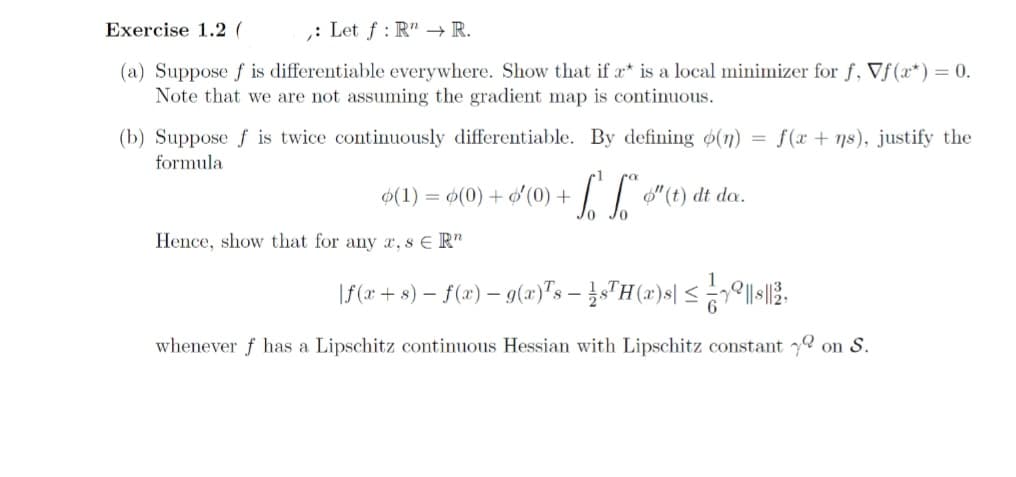Suppose f is differentiable everywhere. Show that if æ* is a local minimizer for f, Vf(x*) = 0. Note that we are not assuming the gradient map is continuous.
Suppose f is differentiable everywhere. Show that if æ* is a local minimizer for f, Vf(x*) = 0. Note that we are not assuming the gradient map is continuous.
Linear Algebra: A Modern Introduction
4th Edition
ISBN:9781285463247
Author:David Poole
Publisher:David Poole
Chapter4: Eigenvalues And Eigenvectors
Section4.6: Applications And The Perron-frobenius Theorem
Problem 70EQ
Related questions
Question
100%
Plz solve within 30min I vill give definitely upvote and vill give positive feedback thank you

Transcribed Image Text:Exercise 1.2 (
: Let f: R" → R.
(a) Suppose f is differentiable everywhere. Show that if a* is a local minimizer for f, Vf(x) = 0.
Note that we are not assuming the gradient map is continuous.
(b) Suppose f is twice continuously differentiable. By defining (n)
formula
(1) = (0) + - $¹(0) + ² * $"(t) dt da.
Hence, show that for any a, s € R"
f(x+ns), justify the
\ƒ(x + s) − ƒ(x) − g(x)¹s − ½s¹H(x)s| ≤ 79||$||2,
whenever f has a Lipschitz continuous Hessian with Lipschitz constant on S.
Expert Solution
This question has been solved!
Explore an expertly crafted, step-by-step solution for a thorough understanding of key concepts.
Step by step
Solved in 2 steps

Recommended textbooks for you

Linear Algebra: A Modern Introduction
Algebra
ISBN:
9781285463247
Author:
David Poole
Publisher:
Cengage Learning

Linear Algebra: A Modern Introduction
Algebra
ISBN:
9781285463247
Author:
David Poole
Publisher:
Cengage Learning